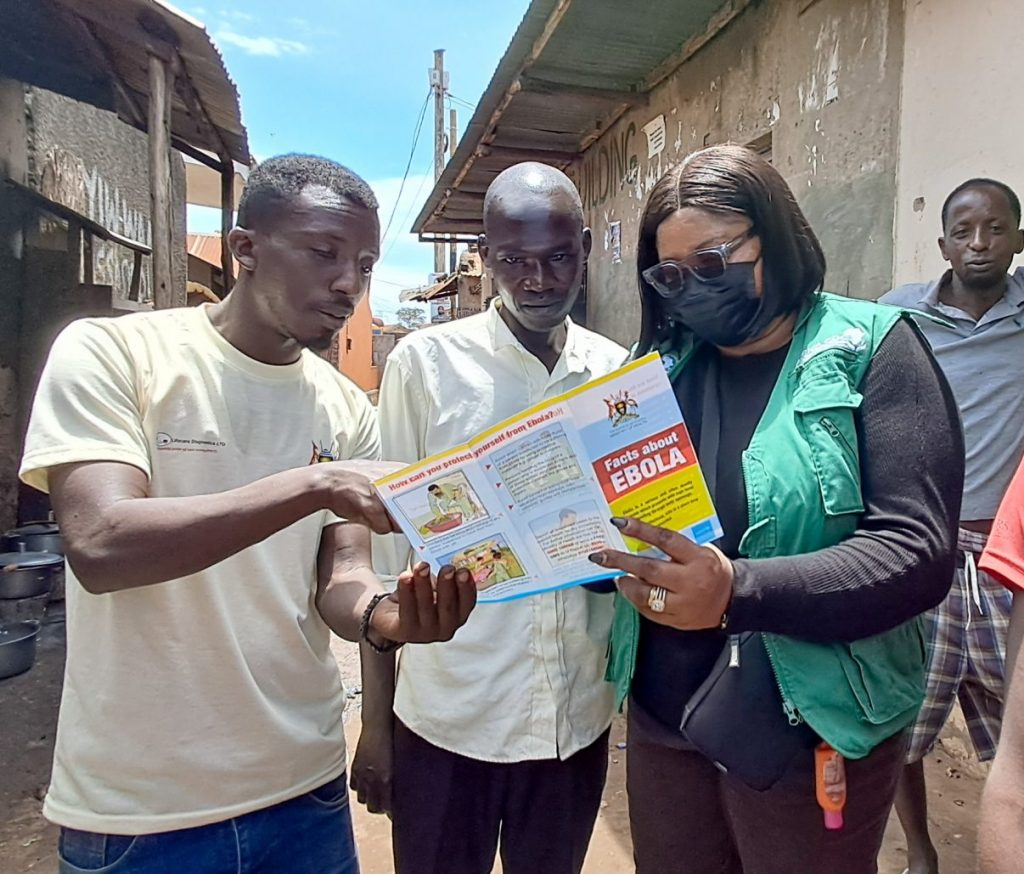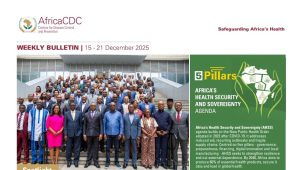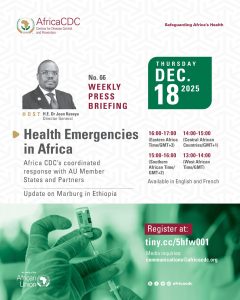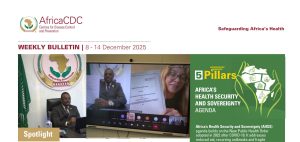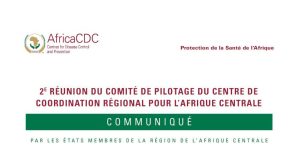On April 26, 2025, Uganda’s Minister of Health, Dr Jane Ruth Aceng Ocero, announced the end of Uganda’s eighth Ebola outbreak.
The declaration came 42 days since the last case was discharged, and no new Ebola cases had been reported.
Yet, beneath the celebration, one thing was clear, the work was far from done. Africa Centres for Disease Control and Prevention (Africa CDC), WHO, UNICEF, and partners are working to ensure that the disease will not make a comeback, or if it does, it will be less fatal.
Since its first major Ebola crisis in 2000, when over 200 lives were lost, Uganda has demonstrated leadership as one of Africa’s most experienced Ebola responders. This latest outbreak of the Sudan strain, declared on January 30, 2025, in the capital Kampala, followed the tragic death of a 32-year-old nurse who showed symptoms at several health facilities.
The outbreak spread across seven districts and three cities, including Kampala, Mbale (District and City), Wakiso, Jinja (District and City), Ntoroko, Fort Portal, and Kyegegwa.
Uganda and partners, including Africa CDC, WHO, and UNICEF, responded swiftly, rolling out a full range of interventions, including active surveillance, enhanced contact tracing, case isolation and treatment, mortality surveillance, and extensive public awareness campaigns.
These measures helped contain the outbreak despite the absence of approved vaccines or treatments for the Sudan strain of the Ebola virus. Communities were also key to stopping the spread, reporting cases, and supporting public health measures.
Fourteen people were infected, four lost their lives, and ten recovered and are now receiving survivors’ support, including counselling and health check-ups. More than 530 contacts were identified and monitored.
Africa CDC played a vital role in supporting Uganda’s Ebola response. Soon after the outbreak was declared, Africa CDC deployed a multidisciplinary team, including experts from the African Volunteer Health Corps (AVoHC), to work alongside Uganda’s Ministry of Health. Together, they strengthened coordination, surveillance, infection control, risk communication, and community engagement. Nearly 900 community health workers and 80 surveillance officers were trained, while 40 infection prevention mentors were deployed to high-risk areas to support health facilities. Laboratory capacity was boosted with diagnostic kits and sequencing tools to speed up case confirmation.
Declaring a country “Ebola-free” is only one milestone; the real challenge is sustaining preparedness.
“Africa CDC is working alongside Ugandan scientists on a national sero-survey to understand how many people may have been exposed without symptoms. Another planned effort is a Knowledge, Attitudes, and Practices (KAP) study among contacts of SVD cases, along with other research to strengthen preparedness and improve responses,” said GebreMichael Molla, Africa CDC Mission Lead for the Ebola-Mpox Response in Uganda, while delivering remarks on behalf of the Africa CDC Director General during the event marking the end of the Ebola outbreak.
Africa CDC is also providing $4.3 million worth of emergency supplies and cold chain equipment, supporting the Ebola After-Action Review, and delivering technical assistance throughout the 90-day recovery phase to help strengthen Uganda’s public health emergency system.
In a media briefing, Dr Jean Kaseya, the Director General of Africa CDC, reaffirmed Africa CDC’s dedication to building resilience across the continent by helping countries stand strong on their own feet when facing health emergencies.
Uganda is determined to translate this hard-earned progress into lasting change. The Ministry of Health has outlined a strong post-outbreak management strategy to safeguard against future health threats. Isolation centres used during the Ebola response are being repurposed as training and emergency response hubs, ensuring that critical infrastructure remains active and ready.
Health authorities are maintaining strong surveillance, recognising that Uganda’s ecological setting, where people, animals, and the environment intersect, makes vigilance critical.
“This outbreak has shown why a One Health approach is essential for managing diseases that spill over from animals to humans. Future spillover events are inevitable, making it critical to strengthen early warning systems at the points where animals, humans, and the environment interact. Investing in One Health systems on the continent is urgent,” said Molla.
In Mubende, Gulu, Wakiso, and Mbale, a survivors’ care programme is ongoing, offering ongoing medical care, psychosocial support, and community reintegration. Uganda is also advancing Ebola vaccine trials, marking a promising step toward prevention.
“Uganda’s journey reminds us that ending an outbreak is not the end of the fight,” said Dr Ocero, adding, it is the beginning of building stronger, more resilient systems for the next public health emergency.

